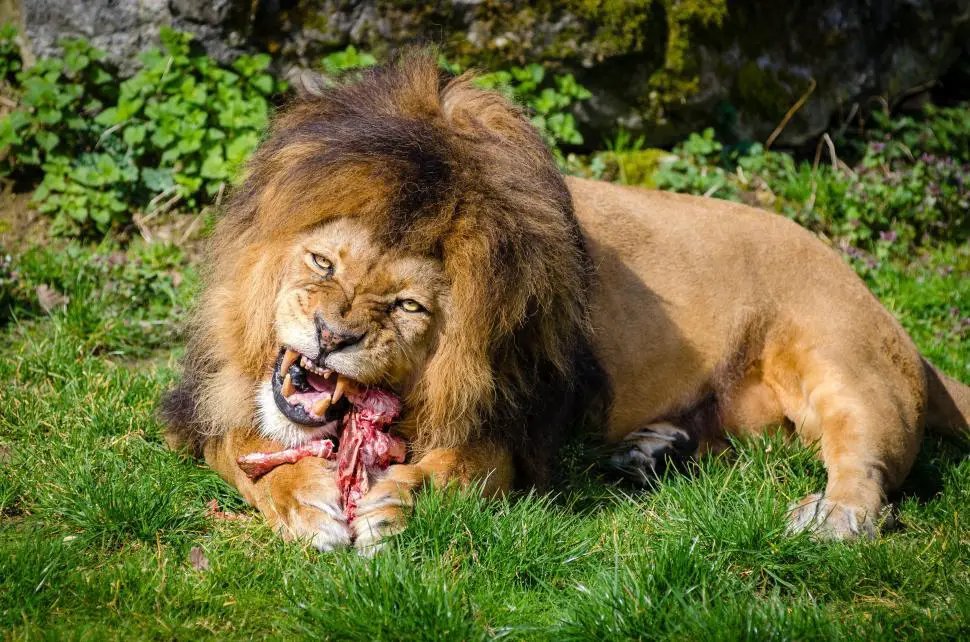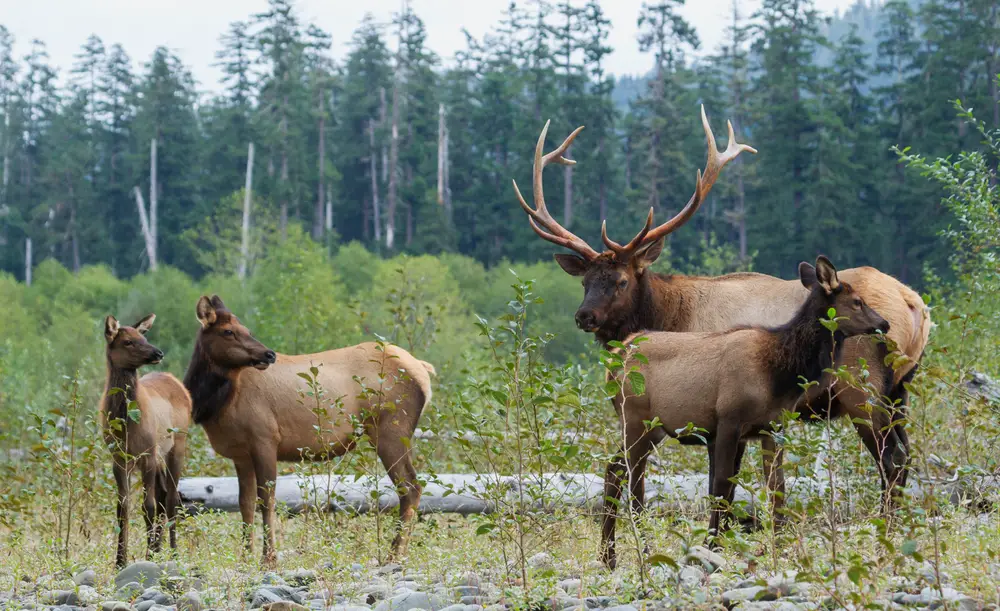It’s astonishing how we navigate our modern lives with echoes of our ancient selves. Every once in a while, a primal habit sneaks through the polished veneer of contemporary existence, revealing dimensions of our psyche we might not even know we possess. These habits, vestiges of survival mechanisms from a world far removed from ours, offer a curious glimpse into what makes us tick. They tether us to our ancestors in unexpected ways, bridging past and present, as they quietly shape our choices and relationships today.
1. The Need To Belong

In the tribal days of our ancestors, survival hinged on community. This ancient need to belong still pulses through our veins, dictating much of our social behavior today. According to psychologist Abraham Maslow, the need for belonging is a fundamental human motivation, as essential as food and shelter. That’s why the sense of exclusion can be so profoundly painful, while inclusion can make us feel validated and secure.
In today’s world, this manifests in various ways—from social media interactions to workplace dynamics, where the quest for validation becomes almost instinctual. You find yourself drawn to groups, brands, or identities that resonate with your values. It’s why being “in the know” or part of a circle can feel so utterly essential. In essence, your social instincts are a modern echo of a time when connection equaled survival.
2. The Fight-Or-Flight Response

Have you ever felt that jolt of adrenaline when faced with a stressful situation, as if ready to tackle a wild beast or run for your life? That’s your fight-or-flight response, an ancient survival mechanism still active in your nervous system. When triggered, your body releases stress hormones like adrenaline and cortisol, preparing you for action. It’s a reflex that’s helped humans survive, but in today’s world, the threats are rarely life-or-death, making this response feel disproportionate.
Nevertheless, it offers a profound insight into how you handle stress and pressure. Some people lean into confrontation, while others instinctively seek escape. Understanding this about yourself can inform how you choose to manage stressors in your life. Rather than letting it rule you, recognizing this instinct can help you navigate challenges with more awareness and control.
3. The Attraction To High-Calorie Foods

Craving that rich dessert or greasy snack? That’s your body’s ancient wiring calling out. Historically, high-calorie foods meant survival, providing the necessary energy reserves for times of scarcity. Research by neuroscientist Paul Kenny suggests that our brains are hardwired to seek out high-calorie, high-fat foods because they activate pleasure centers, much like addictive substances.
In a world where food abundance is more common than famine, this primal craving often leads to modern health dilemmas. Yet, it also reveals how deeply rooted our instincts are in ensuring survival. Understanding this need can help you make more conscious choices about what you eat, balancing indulgence with nourishment. After all, it’s not just about battling cravings but understanding their origins.
4. The Urge To Gossip

Gossip often gets a bad rap, but consider its prehistoric role—sharing information was vital for survival. In early human societies, gossip helped people bond and learn who to trust. This age-old practice was about building connections and ensuring the group’s cohesion. It’s why you might find yourself compelled to share juicy tidbits or lean into whispers about others.
Today, this instinct manifests in workplace chatter or catching up over coffee. It’s about more than just the information exchanged; it’s a way of reaffirming social bonds. However, this can also lead to misunderstandings and mistrust if unchecked. Recognizing the power and purpose of gossip can help you use it wisely, reinforcing relationships rather than eroding them.
5. Territoriality
Have you ever felt a twinge of annoyance when someone sits in “your” spot, even if it’s not officially yours? This territorial instinct harks back to times when protecting one’s space was crucial for survival. Environmental psychologist Robert Ardrey explored how territorial behavior in humans is deeply ingrained, serving functions such as safety and resource management.
In modern settings, your desk at work or your favorite café table fulfills this primal need. It’s about establishing a personal zone of comfort and control. But understanding this can also help you navigate conflicts over space, whether at home or work. By acknowledging this instinct, you can approach territorial disputes with empathy and awareness, defusing tension effectively.
6. The Search For Novelty
Ever wonder why the unknown beckons with both promise and peril? Humans are wired to seek novelty, driven by curiosity—a trait that once meant discovering new resources or territories. It’s why new experiences and the thrill of exploration are so enticing. This longing for the uncharted can broaden perspectives and fuel creativity.
However, it can also lead to restlessness or dissatisfaction with the familiar. Recognizing this urge within can help balance the drive for new experiences with the contentment found in the present. By channeling this instinct positively, you can unlock creativity without succumbing to perpetual dissatisfaction.
7. Hierarchical Behavior
In the wild, knowing one’s place in the social hierarchy was crucial for survival. This instinct is deeply embedded in human behavior, informing how we navigate social structures today. A study by Michael Marmot highlights how perceived social status can even impact your health, revealing the profound effects of hierarchy on our well-being.
In professional settings, understanding your role relative to others can influence your interactions and stress levels. It’s why social status and recognition matter—they’re intertwined with your sense of self and security. Recognizing the influence of hierarchy can guide you in managing your ambitions and relationships with empathy and strategy.
8. The Need For Ritual
Rituals may seem quaint, but they are a fundamental human practice rooted in our history. Early humans relied on rituals for community cohesion and to make sense of the world. They signified belonging, transformed chaos into order, and provided comfort in uncertainty. Today, rituals manifest in everything from daily routines to cultural traditions.
This need for ritual is why you might feel adrift without your morning coffee or annual holiday celebration. It grounds you, offering stability amid life’s unpredictability. Understanding this primal need can help you create meaningful rituals that nurture your well-being and connections. They remind you of continuity in an ever-changing world.
9. The Fear Of The Unknown
The shadowy unknown has always spurred anxiety, a survival mechanism to protect against unseen threats. This fear was vital for avoiding danger in ancient environments. It’s why uncertainty can provoke apprehension, whether facing life changes or new challenges. Understanding this instinct can help you reframe fear into a tool for growth.
In today’s world, this fear often stifles innovation and openness. Acknowledging its roots can empower you to confront it, transforming fear into curiosity and resilience. By embracing the unknown, you unlock potential and adaptability, breaking free from constraints that no longer serve you.
10. The Practice Of Storytelling
Since ancestral times, stories have been the threads that weave communities together. They preserved history, imparted wisdom, and fostered identity. Today, storytelling remains a powerful tool for connection, empathy, and understanding. It’s why narratives captivate you, from novels to films.
This instinct is inherent in how you share experiences, shaping how you relate to others. Understanding the power of storytelling can help you craft narratives that resonate and inspire. It’s about more than entertainment; it’s a profound way to connect and make sense of the world.
11. The Drive For Reproduction
The biological imperative to reproduce ensures the survival of our species. This instinct influences much of human behavior, from attraction to relationship dynamics. It’s why the desire for partnership and family can be so compelling. Yet, in modern times, this drive intersects with personal values and choices.
Understanding its influence on your decisions can help align your life with your authentic desires. By recognizing this instinct, you navigate relationships with clarity and intention. It empowers you to make conscious choices about what truly fulfills you.
12. The Instinct To Protect
The protective instinct springs from a primal need to safeguard oneself and loved ones. It was essential for survival in a world fraught with danger. Today, it manifests in how you care for those you love, from family to friends. It’s why acts of protection and nurturing feel deeply gratifying.
This instinct reveals your capacity for empathy and care, guiding ethical and moral decisions. Recognizing it can help you balance protection with autonomy, fostering healthier relationships. It’s about channeling this instinct into positive, supportive actions.
13. The Craving For Control
Control is a deeply ingrained survival mechanism, rooted in the need to influence one’s environment. It’s why uncertainty and chaos can feel so unsettling. This craving manifests in how you organize your life, from planning to decision-making. It’s about creating predictability and security.
Understanding this instinct can help you manage control in healthy ways, avoiding rigidity or anxiety. By embracing flexibility, you cultivate resilience and adaptability. It’s about finding balance in a world where control is often an illusion.
